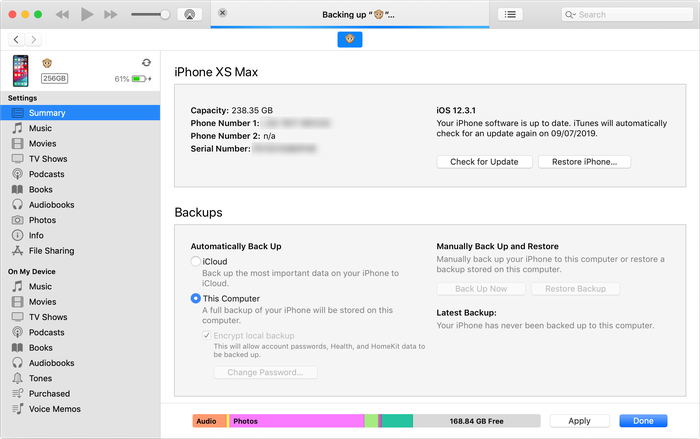

Ensuring Data Safety: Expert iPhone Backup Tips
In our increasingly digital lives, the importance of regular iPhone backups cannot be overstated. Losing your precious data, whether it’s contacts, photos, or important documents, can be a nightmare. To safeguard against such scenarios, follow these iPhone backup tips for seamless data protection and recovery.
1. Understanding iCloud Backup
One of the simplest ways to back up your iPhone is by utilizing iCloud. Ensure that iCloud Backup is enabled in your device settings. This feature automatically backs up your data when your iPhone is connected to Wi-Fi, plugged in, and locked.
2. Scheduled Automatic Backups
To make the backup process even more convenient, schedule automatic backups. This ensures that your data is consistently and effortlessly backed up without manual intervention. Set a time when your device is typically connected to Wi-Fi to avoid using cellular data for backups.
3. Utilizing iTunes for Local Backups
While iCloud is convenient, iTunes provides a reliable alternative for local backups. Connect your iPhone to your computer, open iTunes, and select “Back Up Now.” This method is useful for those who prefer keeping a copy of their data on a local machine.
4. Encrypting Your iPhone Backup
Enhance the security of your backups by encrypting them. When you enable the “Encrypt iPhone Backup” option in iTunes or choose a password for iCloud Backup, your sensitive information, such as passwords and health data, will be included in the backup, adding an extra layer of protection.
5. Monitoring iCloud Storage
Free iCloud storage has its limits, so it’s crucial to monitor your storage space regularly. If you find yourself running out of space, consider deleting unnecessary backups or upgrading to a higher storage plan. This ensures uninterrupted and complete backups.
6. Deleting Old Backups
Over time, multiple backups can accumulate, taking up valuable storage space. Periodically review and delete old backups that are no longer necessary. This not only frees up space but also streamlines the backup process.
7. App-Specific Data Backups
Certain apps allow you to back up their data individually. Take advantage of this feature, especially for apps that store important information. Check each app’s settings to see if it provides an option for data backup.
8. Verifying Backup Integrity
Regularly verify the integrity of your backups to ensure that they are not corrupted or incomplete. This can be done by attempting to restore your iPhone from the backup and checking for any errors or missing data.
9. Familiarizing Yourself with Recovery Options
In case of data loss or a new device, knowing how to restore from a backup is crucial. Familiarize yourself with the recovery process for both iCloud and iTunes backups to minimize downtime and swiftly retrieve your data.
10. Professional Assistance for Complex Cases
If you encounter challenges or have specific backup requirements, seek professional assistance. Apple’s support services can provide guidance tailored to your situation, ensuring that your iPhone backup strategy aligns with your needs.
For a comprehensive guide on iPhone backup tips and expert advice, visit iPhone Backup Tips at tanktroubleplay.com. Safeguard your digital life with these essential practices for data protection and recovery.







